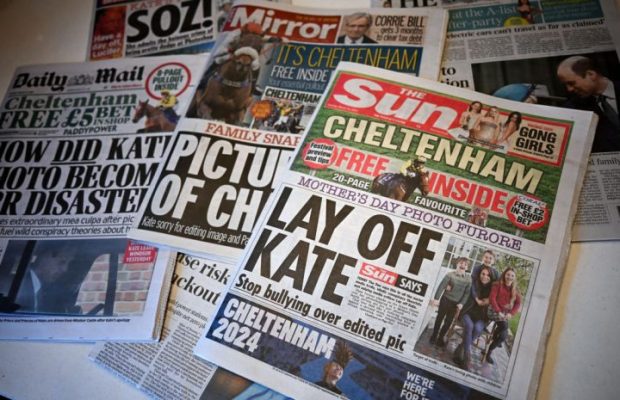Far-right and Islamist extremism are both cause for concern in Britain today. But there’s another threat which all too often slips under the radar.
Referrals to the UK government’s Prevent programme in 2019/20 presenting a ‘Mixed, Unstable or Unclear’ ideology accounted for 51 per cent of all referrals ‒ up from just 11 per cent in 2016/17. This represents a significant rise for the third consecutive year. Despite this, emerging ideologies – especially Inceldom – still aren’t receiving the attention they warrant.
The term ‘Mixed, Unstable and Unclear’ describes instances where individuals exhibit a combination of elements from multiple ideologies (mixed); shift between different ideologies (unstable); or where there appears to be no fixed or coherent ideology, yet may still pose a terrorism risk (unclear).
Counter-Terrorism Policing’s National Prevent Coordinator, Chief Superintendent Nik Adams has described how ‘Mixed, Unstable and Unclear’ ideologies often manifest as:
‘A fascination with all types of extremist or violent content, including school shootings or even extreme misogyny ideologies such as Inceldom’.
The Involuntary Celibates (Incel) ideology has become increasingly prevalent within the ‘Mixed’ element of ‘Mixed, Unstable and Unclear’ ideologies. Incels are considered the most extreme component part of the wider ‘Manosphere’ ‒ a broad decentralised network of websites, chat rooms and gaming platforms oriented around misogyny and opposition to feminism.
Incels blame women and society as a whole for their inability to find romantic partners. They believe they have a rightto women and sex, and that by rejecting them, women are committing ‘reverse rape’.
Elliot Rodger remains the ‘poster boy’ for vast swathes of the Incel movement. Rodger, 22, killed six people in a gun and knife attack in Isla Vista, California in May 2014, before fatally shooting himself. The target of Rodger’s attack was a sorority, an all-female university housing complex.
Rodger has inspired a number of subsequent Incel attacks, including those committed by Christopher Harper-Mercer, 26, who fatally shot an assistant professor and eight students in a classroom at Umpqua Community College near Roseburg, Oregon in October 2015; Alek Minassian, 28, who killed ten and injured 16 after launching a vehicular attack on pedestrians in Toronto, Canada in April 2018; and Scott Beierle, 40, who fatally shot two women and injured another five at a yoga studio in Tallahassee, Florida in November 2018.
The UK is not immune to the Incel threat. There have been at least two cases of individuals convicted of terrorism offences in the UK where there has been evidence of an adherence to the Incel ideology;
Anwar Driouich, 22, of Middlesbrough, was sentencedin March 2020 to 20 months for explosives and terrorism offences. Driouich had an extensive internet search history related to the Incel ideology, having visited the website Incels.co just the day before his arrest. Driouich had previously told a friend that he wanted to commit a ‘massacre’, and stated:
‘It’s f****** humiliating I have no hope with girls man I might as well be a ghost to them its [sic] pathetic’.
Gabrielle Friel, 22, of Edinburgh, was sentenced in January 2021 to a total of 15 years on terrorism-related weapons charges. Friel had reportedly become obsessed with researching mass murders carried out by Incels. Dr Alexander Quinn, a forensic psychiatrist, stated that Friel had expressed ‘an affiliation’ with Elliot Rodger, although a verdict of ‘not proven’ was returned in linking him directly to an Incel-related ideological motivation.
The cases of Driouich and Friel epitomise the way Incel ideology is often present as part of so-called ‘Mixed’ extremist ideologies: Driouich had previously exhibited far-right ideological characteristics by his support for Brenton Tarrant ‒ the far-right terrorist responsible for the March 2019 Christchurch mosque attacks in New Zealand; and Friel had previously stabbed a police officer several times at his college in Edinburgh in what appeared to be a ‘school-shooter’ inspired mass violence attack.
The Incel ideology must be seen for what it is ‒ violent, misogynistic, and capable of inspiring individuals to commit horrific acts of mass violence. While some experts stop short of categorising such attacks as terrorism, the use (or threat) of action to intimidate the public in advancement of a political, religious, racial or ideological cause, is by definition, terrorism.
From first-hand experience working as a Prevent Officer, I know that Incel ideology – or fascination with its ‘poster boys’ – is increasingly seen in individuals at risk of radicalisation. These young men are often characterised by a combination of vulnerability factors, including being a victim of bullying, mental ill-health, self-harm and suicidal intent, and social isolation.
The twelve months of Covid-19 induced social isolation endured so far may prove in time to have been a significant recruitment tool for the Incel movement – likely leading to a sharp rise in adherents. Some of these people may go on to commit terrorist offences. To counter this, the authorities must give due attention to Incel ideology and, where appropriate, be prepared to call the violence (and other activity) it inspires by its real name: Incel-motivated terrorist offending.
<//>
Got something to add? Join the discussion and comment below.
Get 10 issues for just $10
Subscribe to The Spectator Australia today for the next 10 magazine issues, plus full online access, for just $10.
You can read Matt Dryden's Henry Jackson Society report on the rise of ‘mixed’ ideologies here




















Comments
Don't miss out
Join the conversation with other Spectator Australia readers. Subscribe to leave a comment.
SUBSCRIBEAlready a subscriber? Log in